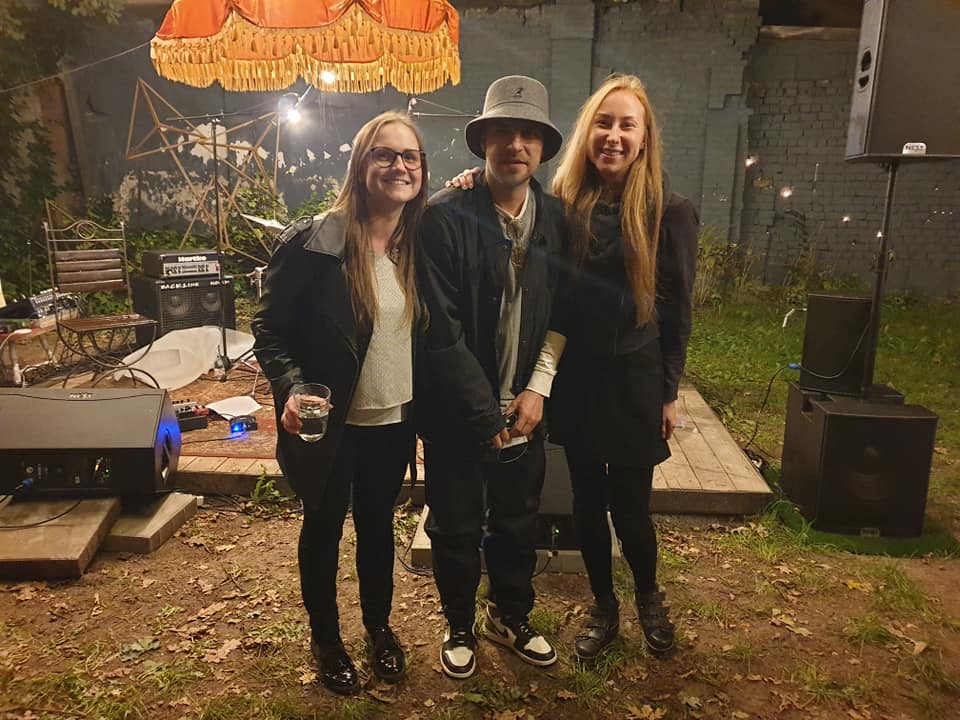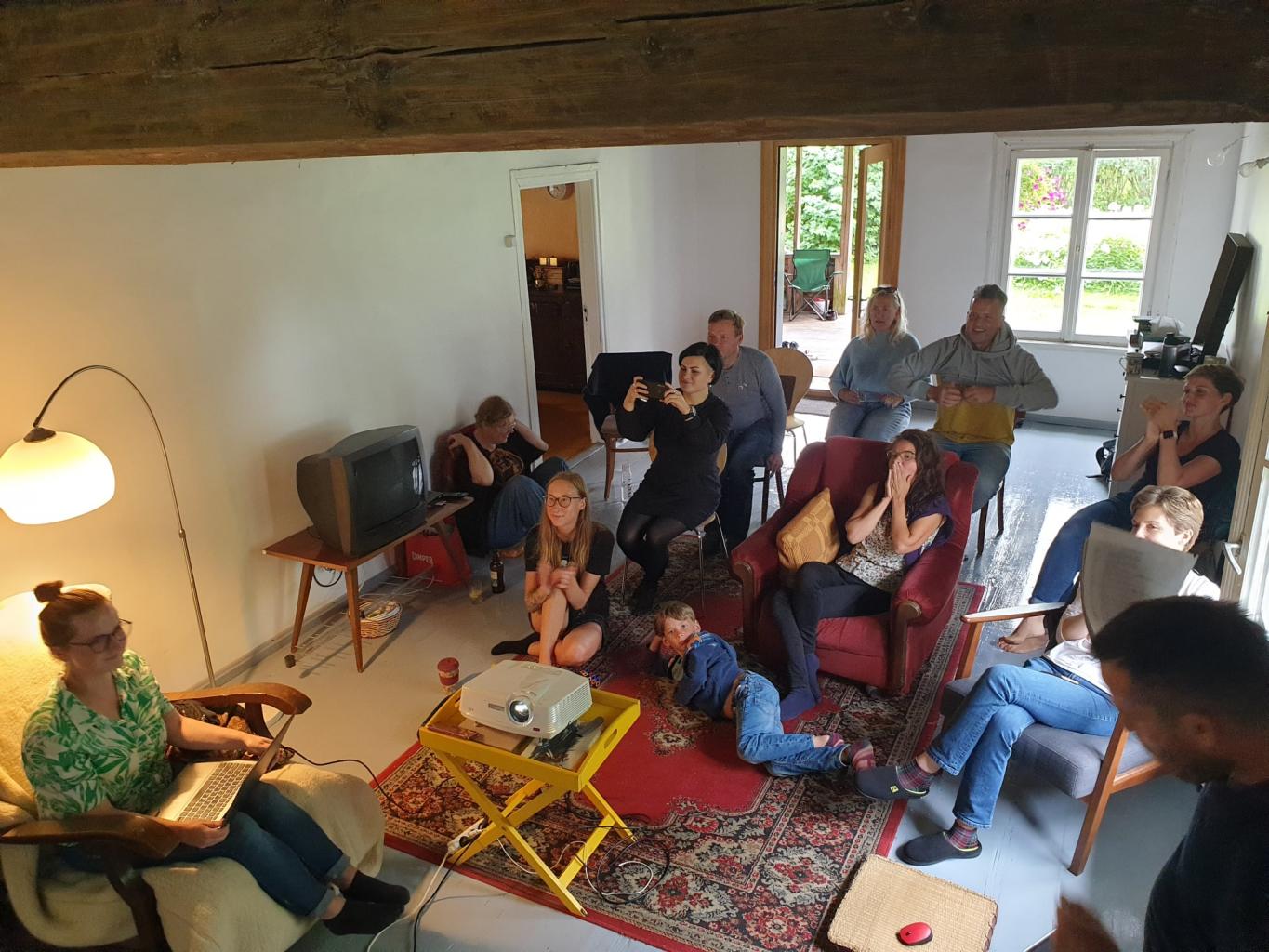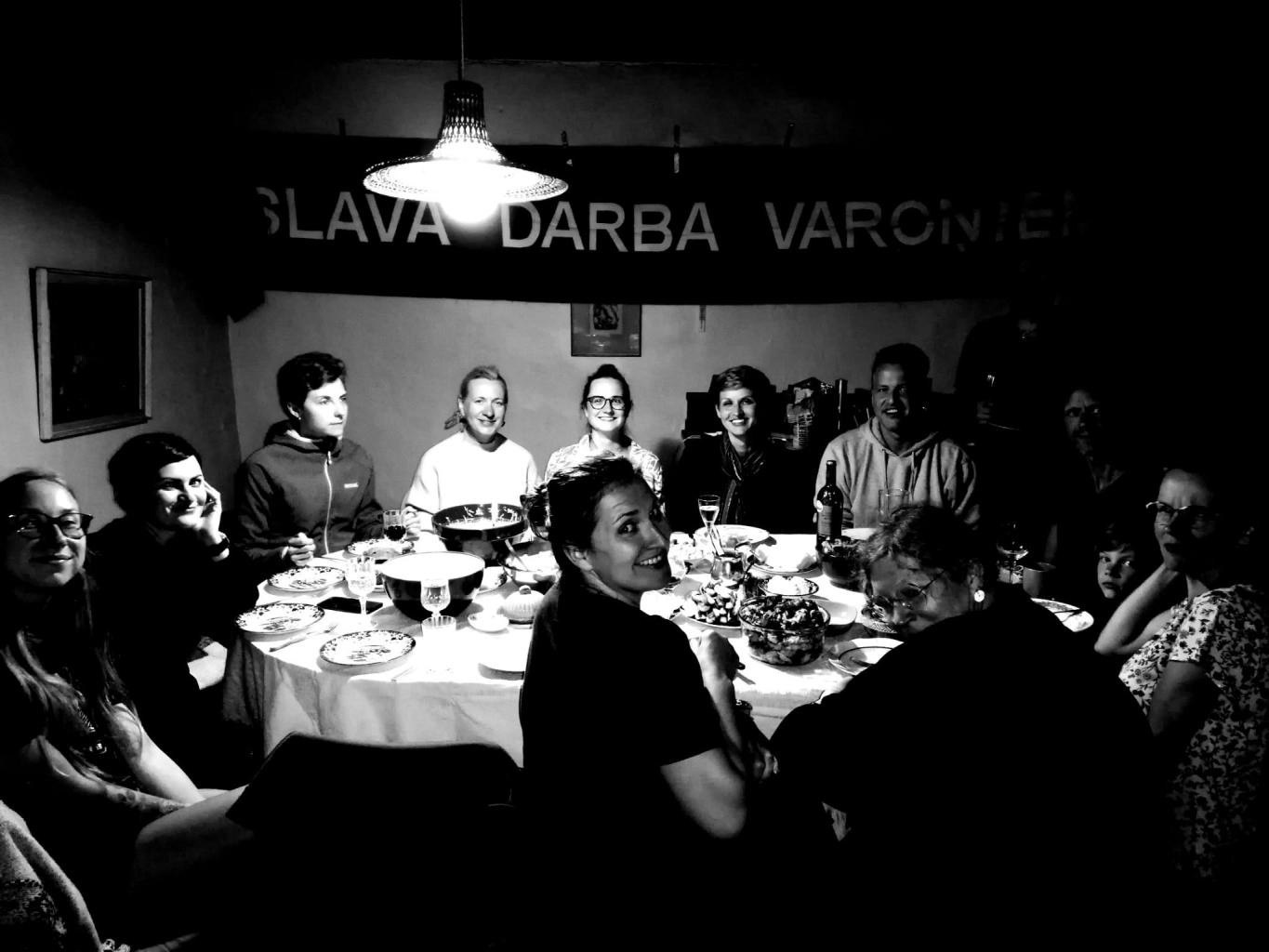On the Same Page: How Our Social Anthropologists Worked on Team Spirit During the Pandemic
‘We regularly feature screenshots from Zoom among posts about interesting lectures and events on our Social Anthropology programme’s Facebook page. In the screenshots, you can see the community spirit that the anthropologists, both staff and students, at Rīga Stradiņš University (RSU) have,’ explains Ieva Puzo, the Head of the programme speaking about her experience with team building during the pandemic.
What is the mood in the anthropology community at RSU?
The mood changes along with that of the rest of society. Sometimes we anthropologists think we can look at processes from the side-lines, but at the moment we are too deeply immersed, and we need the distance of time in order to be able to reflect on this period.
It seems like your community has stayed quite active during this time.
Working remotely gave us the chance to try something new, that is until everyone got bored of it! We realised that we needed to meet in person, even if this could happen less frequently. As soon as the restrictions allowed for it, we started planning the first events.
Our discipline is a very social one in general, and we learn from one another in class, through conversations, discussions, and speaking about our theories. This is how ideas are born.
Most lecturers and students take part in these meetings. Lecturers of individual semesters meet separately only at the beginning of each semester to discuss technical matters. Those who have less experience with teaching remotely are happy to listen to their colleagues’ suggestions and experiences. But all other events are meant for both students and lecturers.
I hope that the meetings we have at the beginning and the end of the semester have become a tradition. During the pandemic, everyone had to find ways to organise events that adhered to the restrictions in place at the time. Musicians also had to find opportunities to perform. So, on a rather chilly October day, we found ourselves at a concert by Latvian rapper Ozols at the venue Balodis to celebrate the start of the semester. Under different circumstances, we probably wouldn’t have attended this concert, but everyone was so eager to meet, and the dates aligned. It ended up being a very nice event with a great atmosphere.
 At the concert by Ozols at Balodis. Photo from the private archive
At the concert by Ozols at Balodis. Photo from the private archive
In December, we celebrated the end of the semester in the bar Ezītis Miglā, but before that I met those who couldn't make it on Zoom. Between these two book ends, there have also been other events initiated by different people in our group – in late autumn we ended up in Pierīga, made soup in one students’ home, of course, talked about anthropology. Someone will tell you about something new they’ve read or a difficulty they’ve encountered in their research. We can then all think together and offer new perspectives. These are very nice, supportive moments.
The central event for me is the end-of-semester party. For the last two years, we have held it in the garden of one of our student’s here in Āgenskalns. I hope that this will remain a tradition.
We have a small enough programme to do this and for all the people in our community to feel a sense of belonging and to be able to build the identity of being an anthropologist at RSU. It’s important.
There’s another special event that we organise during the summer. Every second year, our alumni organise the Baltic Summer School of Anthropology that usually attracts a lot of people. It was supposed to take place last year, but because it was difficult to predict and plan a large event, a small group of us met at the country home of Klāvs [Associate Professor Klāvs Sedlenieks – ed]. The students created a programme and planned everything, including meals. Every meal was like a feast!


At the country home of Assoc. Prof. Klāvs Sedlenieks. Photo from private archive.
Anthropologists have a very inclusive approach. How do you organise virtual meetings?
I know that there are various new apps that you can use to create togetherness, but we stick to Zoom. Our programme is quite dynamic with new students and lecturers joining from time to time, so these sessions also have an introductory function. We use Zoom rooms where people can either continue discussions that have started at other occasions or meet newcomers.
I organise work meetings with students on Zoom once a month. They are an opportunity to share and find quick solutions if you need one. It doesn’t always work like that in class. I encourage students to start their own WhatsApp groups.
I listened to an interview with you on Latvian radio where you said that you would be an event organiser if you weren’t an anthropologist. A lot of organisation goes into each event mentioned above.
Yes, it takes work and planning, but it’s worth it.
There are people who believe that it’s impossible to build team spirit remotely and that online events make no sense. What do you think?
You need to put in more thought when you organise remote events. There are different apps now. An alternative to Zoom is Kumospace, with which you can get closer or further away from someone simulating a kind of party atmosphere.
But the way you can split off into groups on Zoom is good. You just need to keep an open mind and let the conversations lead you in any direction they go.
It can be confusing to meet someone in person when you’ve only been communicating remotely for a while. You have to get used to face-to-face contact again.
Right. After meeting in person again I observed different new physical sensations and heard comments like ‘I thought you were taller/shorter’, or ‘Your hair looks different than what I imagined’. Some found it harder to put together the real person with the picture they had gotten used to on the screen. We noticed things we wouldn’t have paid attention to otherwise.
What do you have planned for the near future?
The last time we all met was in December. The winter graduations are coming up, but these will take place remotely. We will celebrate it properly at the end of the semester when we’ll all hopefully be able to meet up. In between, we have our regular meetings to deal with work issues – we get together to talk through what’s going on, what needs to change and to sense what the mood is. It is important to get on the same page with the people you’re working with.
Related news
 Time capsule laid at ceremony for construction of new RSU sports complexFor Students, Consolidation, For RSU Employees, Internal consolidation, Development
Time capsule laid at ceremony for construction of new RSU sports complexFor Students, Consolidation, For RSU Employees, Internal consolidation, Development


